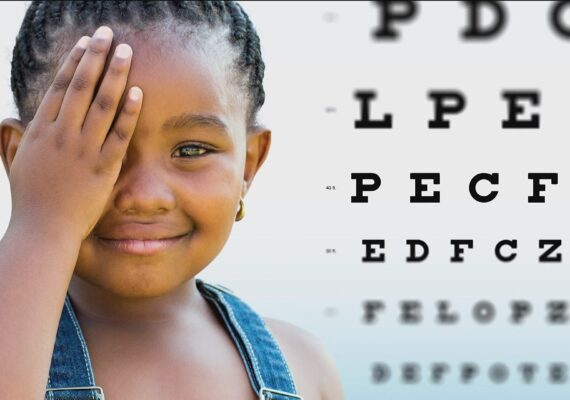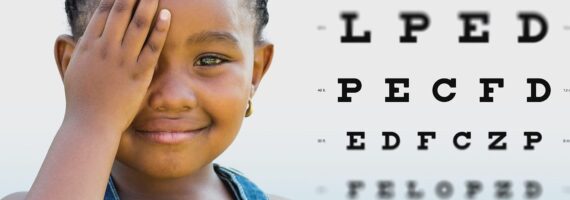There are 1.1 billion people globally living with vision loss. That includes 91 million children – our future – who live with vision loss. Detecting and addressing vision loss among children brings huge benefits – transforming lives, boosting educational attainment and enabling children to reach their full potential. School-based screenings can identify other vision issues, helping to get them addressed promptly. Without action, vision loss among children is projected to grow rapidly in the years ahead. We need to educate our children about the importance of eye health and why it is important to regularly get their eyes tested.
Of the 91million children that suffer vision loss;

Description & Process
As children are growing, it is important for them to take care of their eyes by having healthy eating habits and a healthy lifestyle. Eye issues in these years can significantly impact the vision and quality of well-being of the child. It is important to nourish children’s body and mind with healthy inputs. Cutting down on junk food reduces the risk of childhood obesity and associated health issues. Eating healthy foods promotes overall eye and body health.
Research is pointing to an alarming statistic: almost 50% of the world’s population will be short-sighted (referred to as myopia) by the year 2050. We have already started to see more and more children requiring eyeglasses. To reduce the risk of children having to wear eye glasses and also reducing the rate of increase in myopic eye power, playing 1-2 hours outdoor under natural sunlight has proven to be beneficial. So let kids go and play outdoors!
Excessive gadget use and close work have also shown to increase the risk for eye power increase. So, it is equally important to cut down on screen time as much as possible and raise awareness regarding good visual hygiene among children.
Due to the changes in lifestyle and increase in near work among children, it is equally important for children to also have routine eye examinations scheduled.
The following are 9 signs your child may have a vision problem:
Education Pack
The LoveYourEyes education pack is available under our paediatric care service. You can book an online service, where we can take you through the test at home or book for us to visit your school or institution to guide you through the activities

The foldable eye-screening tool (TFET).
A phoropter is used to spot refractive error and measure our vision for corrective lenses, and typically costs several thousand cedis — which means that you have to go to an office with one installed to get your eyes checked. The problem is, everyone needs eye care — especially children, for whom eye health intervention at the right time can prevent irreversible vision loss. But while rates of blindness in wealthy countries are below 0.5 percent, blindness in poor people in the developing world; like Ghana exceeds 1 to 2 percent — much of which could be avoided with refractive error screening that’s simply not available to those populations.
The Paper Foropter has two lenses set at specific distances, embedded into the paper. The Foropter automatically measures what the refractive error is — which indicates whether the patient needs to see an eye doctor for follow-up. The process takes less than a minute, and anyone can test themselves.
We can send one to you or come to your school for screening. Please get in touch soon.


